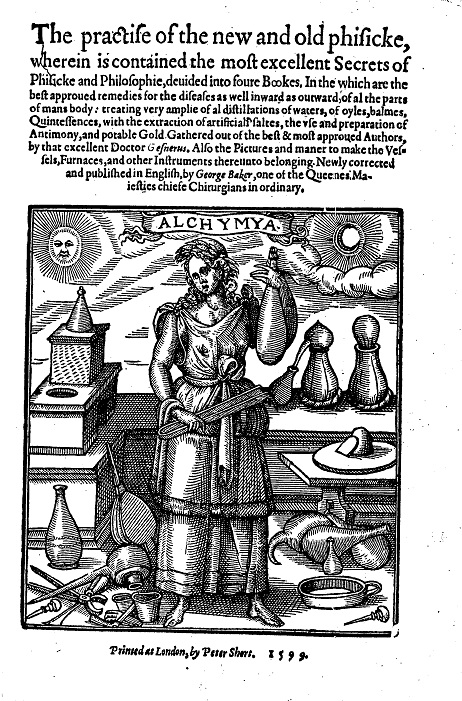The debate on whether Arnau de Vilanova’s fame as an alchemist was well-founded or not has lasted centuries, but today scholars agree in regarding Arnau’s dedication to alchemy totally false. The reasons against it are:
- His medical writings show no more than an interest in and superficial knowledge of alchemy, and if we bear in mind that much of the pseudo-Arnaldian alchemical corpus has a medical orientation, the separation between both activities would be inexplicable.
- Arnau’s dedication to alchemy is not documented by any contemporary of his or by the inventory of books found upon his death.
- The styles and methodologies of the medical and alchemical books are totally different.
- The manuscript traditions of the medical and alchemical corpus are quite distinct.
- The particular analysis of the textual transmission of the alchemical texts in the Arnaldian corpus has gradually revealed the apocryphal nature of each of them.
Therefore, the research examines why Arnau has been attributed an alchemical side, similar to Pseudo-Llull’s corpus. The main clues noted to date (Calvet and Pereira) have been Arnau’s pharmacological research, eschatological prophetism and Christ-centrism of his spiritual treatises, his fame as a necromancer, his research into extending life and potable gold at the papal court, as well as the possible alchemical activities of people in his closest milieu (disciples, followers, secretaries and family members). Another hypothesis is that the source of this attribution is confusion with the Occitan alchemist Perarnau de Vilanova, who might have been the author of the first core of the Arnaldian alchemical corpus (Rodríguez Guerrero).
The case of pseudo-Arnau is not unique: in fact, alchemy was a kind of knowledge that tended towards false authorship as a general rule, concentrating its texts under the authority of the great names in the ancient and mediaeval sciences, including the mythical Hermes Trismegistus, Aristotle, Roger Bacon, Albertus Magnus and Raimon Llull. Without a doubt, the condemnations and discredit of this knowledge drove the real authors into anonymity or pseudo-epigraphy for many years. And by attributing these works to higher-status intellectual figures, they gained prestige and intellectual validity for their texts and for a marginalised art that was questioned by orthodox thinking.
